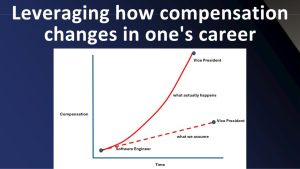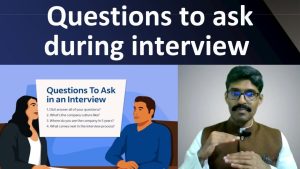The Insider Guide to Careers
Insider information, secrets and tips about getting hired and building careers. For employees and job candidates.
It is time for employees to understand that they are interviewing the interviewer as much as the interviewer is interviewing them. If you are a good candidate, an interviewer is typically as tensed as you are as they want to leave as positive an impression as possible.
1) Do not answer any personal questions
As per the Equal Employment Opportunity Commission (EEOC), there are protected characteristics that a company should never discriminate on. They are race, color, religion, sex (including pregnancy, sexual orientation, or gender identity), national origin, age (40 or older), disability, and genetic information. If the employer tries to guess to ask you any question about any of these characteristics, the best way to respond is to retort with a straight face. If you are looking for a script, you should say – “you are violating EEOC guidelines for interviews, and by asking this question, you are placing the company under legal liability. You can check with HR that I am right.” This answer shows that you are legally sound and can defend your turf. For employees in India, where such guidelines don’t exist, it is alright to say, “I don’t see how this question relates to my fit for the job. I would love for you to ask me a different non-personal question focussed on my job skills.”
Asking for compensation is not an illegal question. I have written a post on the best way to answer this question. Try to avoid answering the question from your end, as you will invariably give a lowball number. Instead, coax the company to reveal the salary range to you. At the same time, remember that culture and learning on the job is more important than compensation. This post details how to investigate the company’s culture.
2) Do not ignore personal and snide remarks during an interview
During an interview, companies try to put on their best possible impression. If you have interviewers making hurtful remarks during an interview, that is a big red flag. If you work with these people, you will face way more problems. Remember, the interviewers are on their best behavior. Even if you want the job desperately, no job is worth selling your self-respect and integrity. There are tens of thousands of companies in this world, and the world doesn’t end with one employer.
3) Too many interviews are not a good sign
If you are not a manager, you should face 4-7 interviews. If you are an employee below a Senior Director, you should only face up to 8-10 interviews. Only at the Vice President and above level will you face 10-15 interviews. Interviews above this number denote that the company does not consider you a good fit. At the same time, they are unsure whether to reject you. When you are in interview limbo land, in 95% of the cases, the final result is rejection. The only way you can break this logjam is to reveal to them that your situation has changed and that you are dropping out since you have another offer. At that point, companies are forced to make up their mind and decide whether they indeed need to give you an offer.
4) Handling exploding offers
When you have an exploding offer, you must decide within 1-2 days if you will accept it. I once had an exploding offer where a big tech recruiter wanted me to decide on the spot whether I would take up the offer. I decided not to and ended up with a much better offer later. Ultimatums do not work because humans need time to make decisions. Hasty decisions rarely turn out to be good; hence employees should always fight any pressure to make a quick decision on the spot. Companies roll out exploding offers because they do not want to make you think. There may be something wrong in the workplace that they don’t want you to investigate. The hiring managers may have gotten away with bad, bullying behavior in the past and now want to try it out on you. In any case, these companies are not a good fit.
5) Check whether you get accurate answers to probing questions
By the close of the interview, grab the chance to ask the company questions from your end. I have written an article on some good questions to ask. If you ask the hiring manager questions like “What are the biggest issues you currently face” or “What are the biggest challenges in this role,” you will get a sense of the work culture and challenges inside the team. With a high probability, your manager’s problems will quickly become yours. Ask probing questions about which metrics are used to measure success during performance evaluations, and meditate if the expectations and metrics are feasible. You may be unable to ask all these questions during your first discussion with the hiring manager. If so, consider scheduling a separate round of conversations with the hiring manager when you can run through all your questions. Nobody will take this amiss, as this denotes that you are vested in the job. If you get vague answers or if the manager deflects answering the question repeatedly, this is another red flag.
For more such articles, also follow my Substack and Careerbolt channels.



